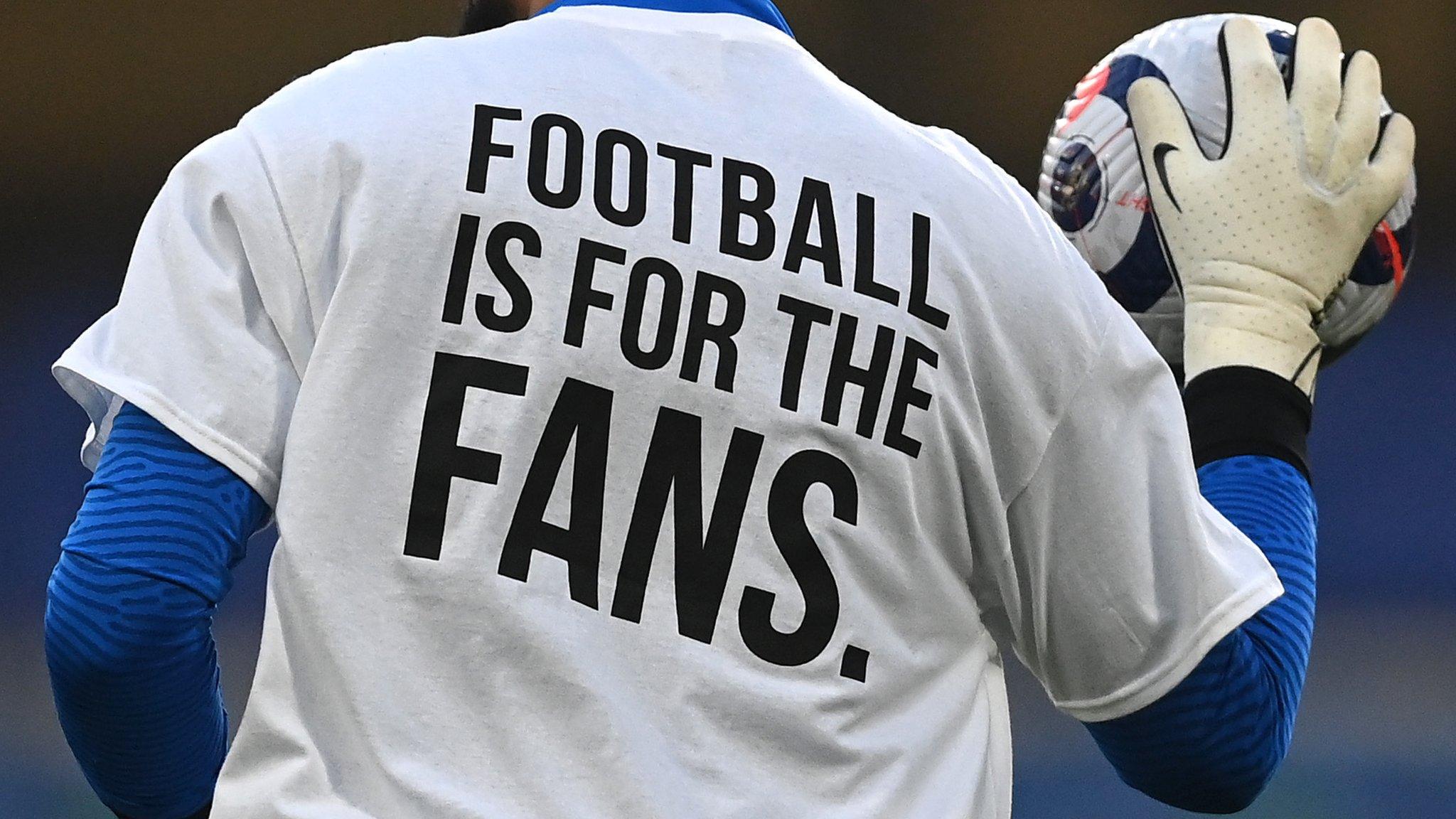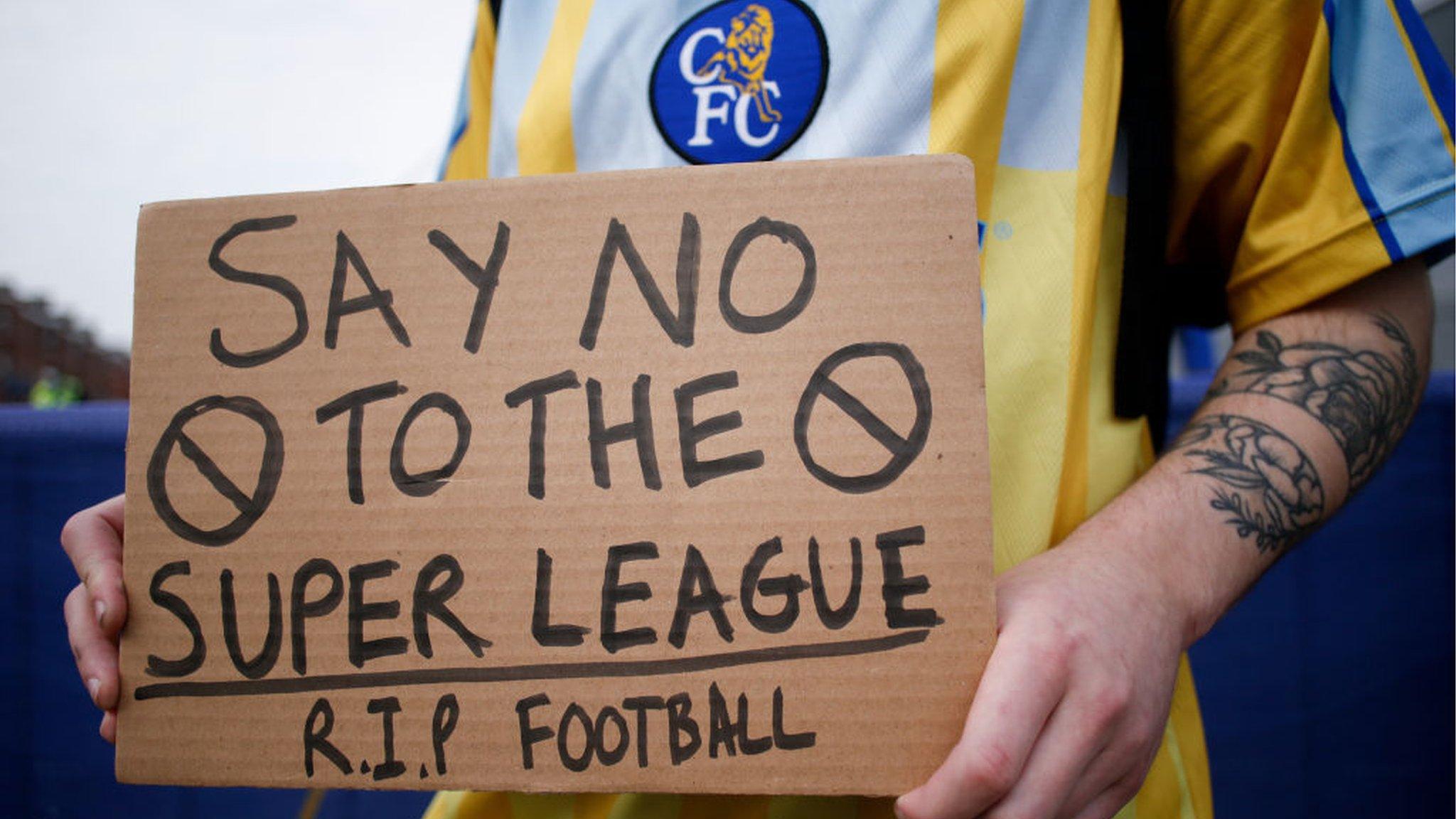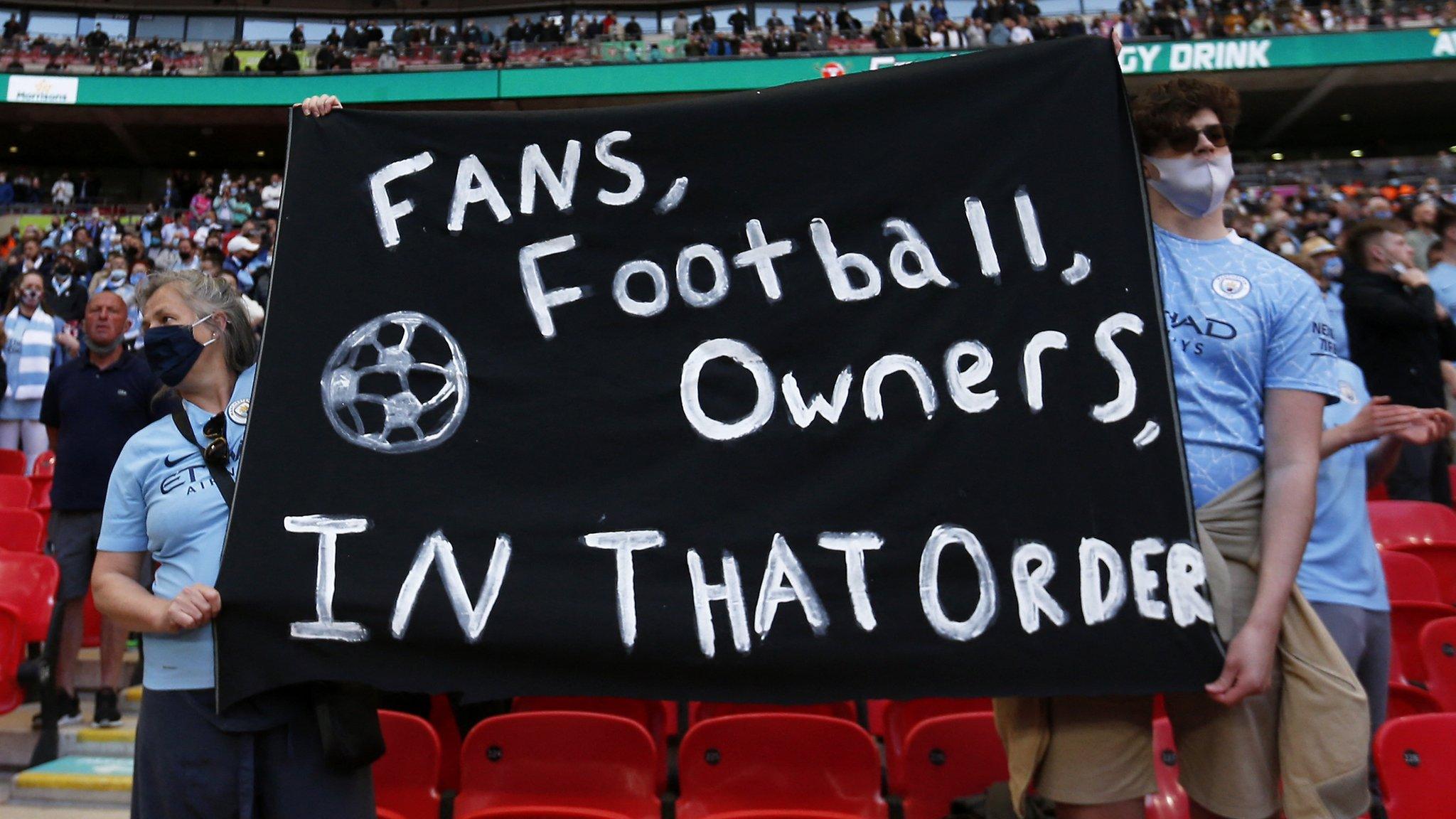Football Governance Bill fear for survival of 'small clubs'

Fan protests took place following the failed launch of a European Super League in 2021
- Published
Dagenham & Redbridge chief executive Stephen Thompson has expressed concerns about the impact the Football Governance Bill could have on "small clubs".
The legislation, which is set for its second reading in Parliament on Tuesday, would grant powers to a body, independent of government and football authorities, to oversee clubs in England's top five men's tiers.
The government announced plans to appoint a regulator in February 2023, following a fan-led review in 2022.
“We are worried that the Bill will be so onerous," said Thompson, whose side are 15th in the National League table.
"Some National League clubs work on two or three people and some volunteers, and it worries me that a lot of our clubs, small clubs, are not going to be able to survive with the regulation and reporting required."
He added that he was "worried about the constraint on the Owners’ and Directors’ Test", as "if the Bill makes it too onerous" to buy clubs, "then people won’t invest in our clubs".
One of Thompson's issues was the English Football League (EFL) "blocking" three clubs being relegated from League Two and replaced by three clubs from the National League.
"It should be the format that runs all the way through and that is what has been talked about for several years," he said.
"This is one of the most important things for National League clubs, yet it sits outside the regulator’s remit."
West Ham United owner David Sullivan has already said that the Premier League "may cease" to be the world's top division if an independent regulator is introduced.
'Taking big risk with very successful industry'
The Bill must go through parliamentary process before it is made law.
The legislation follows a fan-led review, which said a regulator was necessary for the long-term financial stability of the men's professional game after issues including financial mismanagement and plans for a breakaway European Super League (ESL).
The regulator will have powers revolving around three core objectives: improving financial sustainability of clubs, ensuring financial resilience across the leagues and safeguarding English football's heritage.
New club owners and directors will face stronger tests to help prevent the possibility of them putting clubs out of business, as was the case with Bury and Macclesfield, while a licensing system covering clubs from the National League up to the Premier League has been proposed.
As part of their licence, clubs will be required to consult their fans on key off-field decisions, such as club heritage and the club's strategic direction.
The bill also includes new backstop powers around financial distributions between the Premier League and the EFL, so that if the two parties continue to fail to agree on a 'new deal', the regulator can ensure a settlement is reached.
The government has long warned the football authorities that an independent football regulator (IFR) would have such powers to intervene.
“We are taking a big risk with a very successful industry and so we're asking MPs and Peers to look at the Bill very carefully and to look at it with a dispassionate head on and make sure that all of football benefits from it, and we don't bump into unintended consequences," said Premier League chief executive Richard Masters in a joint media release with the National League.
“Football is successful because it has had investment, investment from all over the world coming into this country and investing on the pitch for fans to really enjoy. We don't want that to be choked off, we want for that model to continue.”
He added: “There are lots of great things happening in the game and I would much prefer if the Premier League and EFL could come to an agreement itself.”
Related topics
- Published19 March 2024

- Published19 March 2024

- Published25 April 2022
